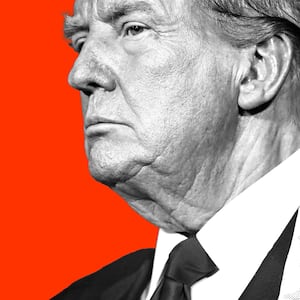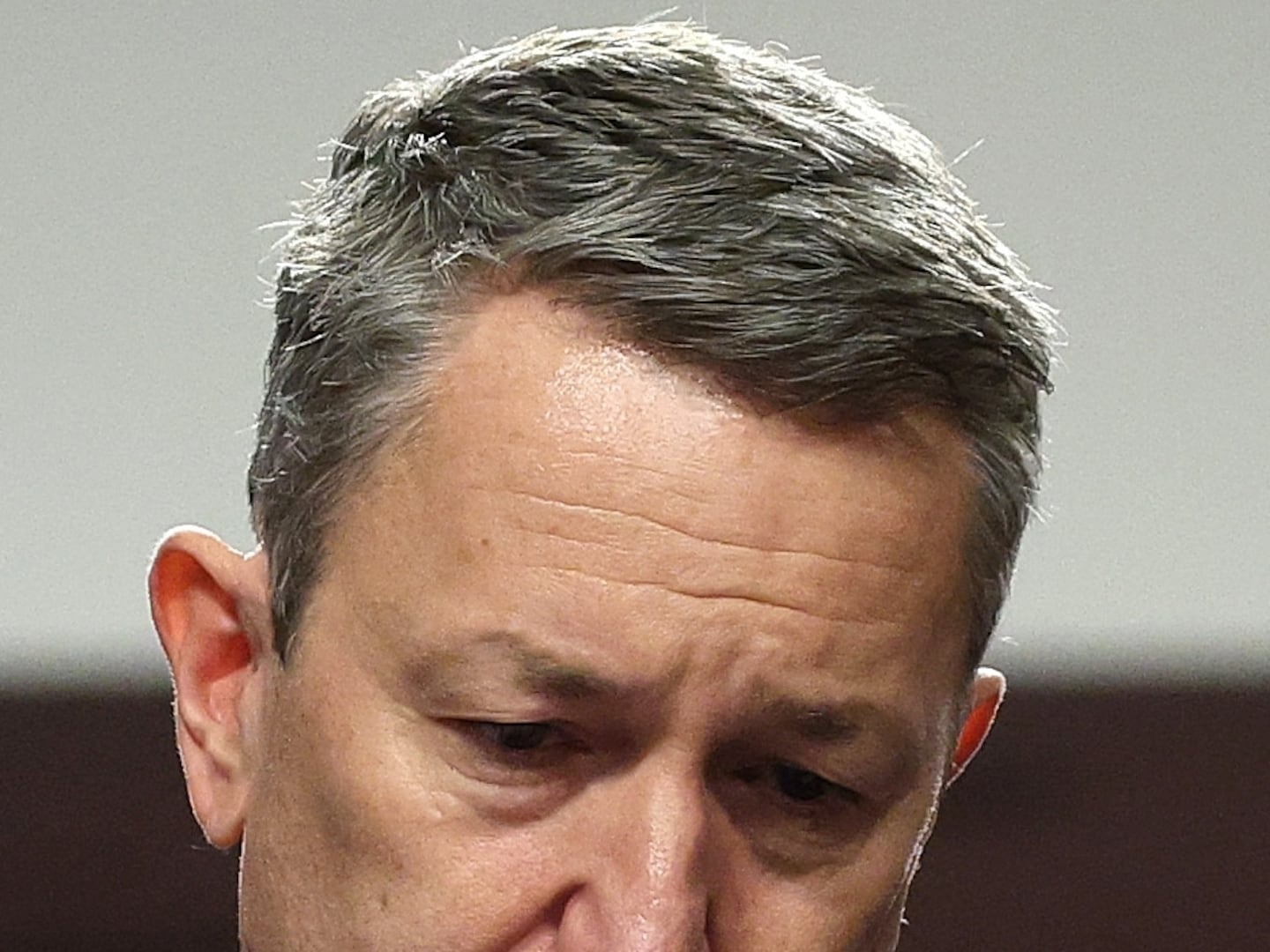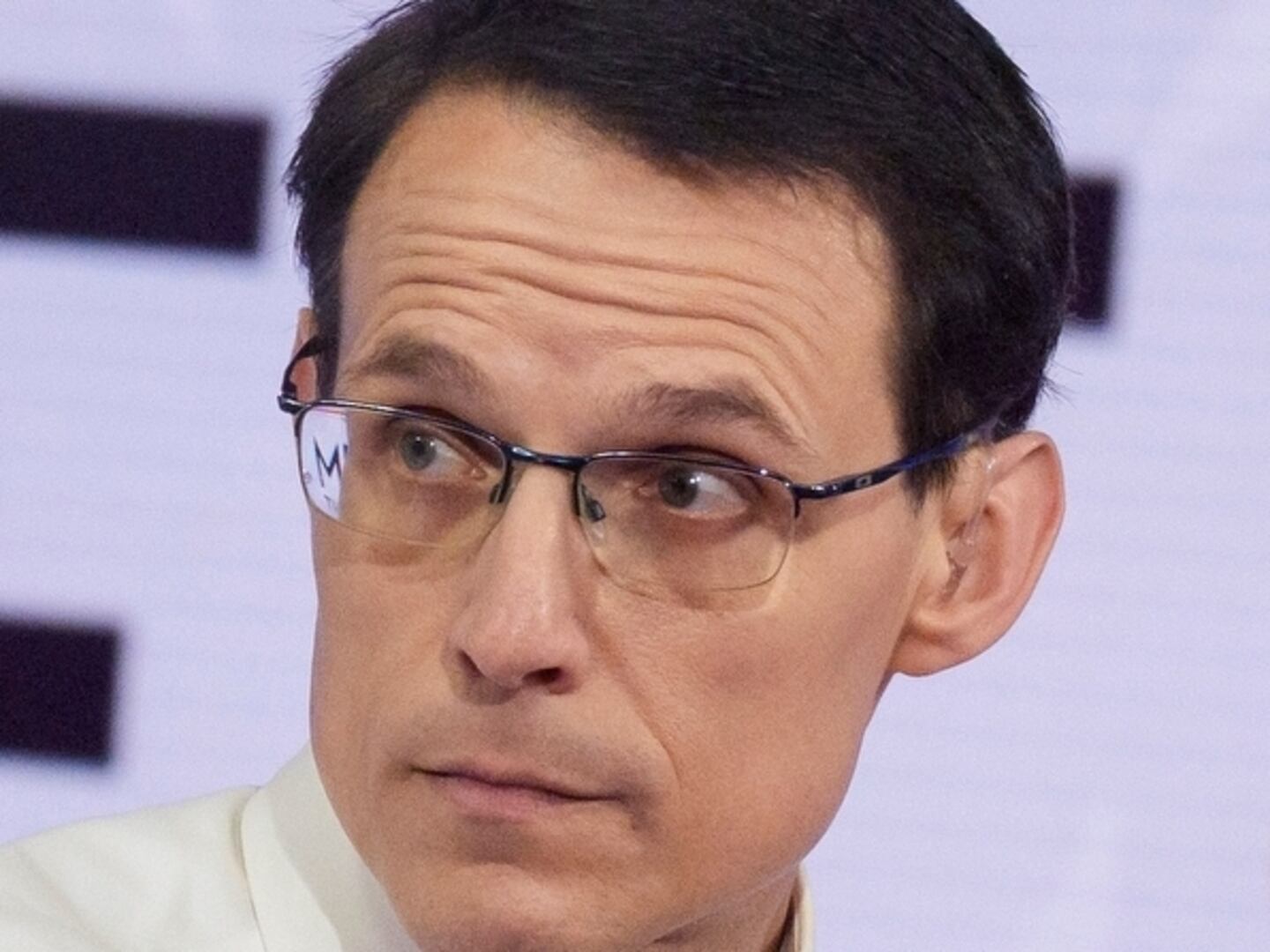The little-known insurance company that rescued Donald Trump by providing a last-minute $175 million bank fraud bond isn’t just unlicensed in New York; it hasn’t even been vetted by a voluntary state entity that would verify it meets minimum “eligibility standards” to prove financial stability.
Perhaps even more troubling, the legal document from Knight Specialty Insurance Company doesn’t actually promise it will pay the money if the former president loses his $464 million bank fraud case on appeal. Instead, it says Trump will pay, negating the whole point of an insurance company guarantee, according to three legal and bond experts who reviewed the contract for The Daily Beast.
“This is not common… the only reason this would be done is to limit the liability to the surety,” said N. Alex Hanley, an expert in how companies appeal enormous judgments.
ADVERTISEMENT
These two points, noted here for the first time, validate the New York attorney general’s concerns that Trump is trying to avoid a financial punishment that could be catastrophic to his riches and reputation.
“There are many questions here, and that short piece of paper gives very little comfort,” said Maria T. Vullo, who was formerly New York’s top financial regulator.
“I believe this paper isn’t worth much and there are more shenanigans behind it,” said one former regulator, who’s intimately familiar with industry norms but spoke only on condition of anonymity.
After a three-month trial ended with a state judge concluding that Trump committed bank fraud for a decade by lying about his wealth and property values, the real estate tycoon and his top executives were ordered to pay $464 million—a massive sum that increases every day with interest that dates back years. But unable to find a large and trusted surety company to provide the half-billion-dollar bond that would legally halt AG Letitia James from seizing his properties, Trump convinced an appellate court to lower that sum to $175 million.
He then opted for an insurance company in California that’s tied to Don Hankey Jr., a billionaire MAGA supporter who’s built a nasty reputation by dealing in subprime auto loans that have resulted in numerous complaints about predatory business practices—like illegally repossessing the cars of American soldiers.
On Thursday, The Daily Beast noted how the Knight Specialty Insurance Company isn’t licensed by New York’s Department of Financial Services, a detail that has caught the attention of bond experts. What’s more, the firm’s financial statements show that it doesn’t have the “surplus” to meet the capital requirements for posting the bond.
Just like federal regulators require financial institutions to have sufficient reserves in case of a run on the banks, New York law limits how much money state-regulated surety companies can post on a single bond to 10 percent of a firm’s total “capital and surplus.” However, a court filing by the company on Thursday showed that Knight Specialty only has $138 million in “surplus,” vastly exceeding the government-set cap because the Trump bond alone makes up 127 percent of the company’s reserves.
“Based on the financial statement provided, Knight Specialty is providing a bond that is one-third of its total assets and greater than its surplus, which is incomprehensible for a carrier to underwrite,” said Vullo, who was previously the superintendent of New York’s DFS.
In subsequent court filings, the AG’s office immediately questioned whether Knight Specialty was even good for the money. The law enforcement agency said it “takes exception to the sufficiency of the surety,” noting that Knight Specialty is trying to operate “without a certificate of qualification.”

Former president Donald Trump looks on at the 18th green during day three of the LIV Golf Invitational - Miami at Trump National Doral Miami.
Megan Briggs/Getty ImagesIn normal circumstances, defendants like Trump would tap a surety company overseen by state regulators at DFS, which verifies that an insurer is “solvent, responsible and otherwise qualified to make policies or contracts of the kind required.” But Knight Specialty appears to be helping Trump with an alternate option: operating through what’s called the “excess and surplus lines insurance” market.
In the industry, this secondary exchange is typically reserved for high-risk business ventures, or those that have a severe loss history that makes them untouchable in the primary market, forcing them to find a willing insurer that isn’t licensed in their home state.
Indeed, the insurance company’s president, Amit Shah, made that very point when defending his firm’s ability to strike this deal, telling CBS that Knight “is not a New York domestic insurer, and New York surplus lines insurance laws do not regulate the solvency of non-New York excess lines insurers.”
That’s why Knight Specialty’s recent finances—which showed that its “capital and surplus” were even smaller in recent years—were registered with the Surplus Lines Stamping Office of Texas, a government-created nonprofit that tracks these types of figures.
New York has a nonprofit like that too, called the Excess Line Association of New York. ELANY states that its role is to “facilitate compliance,” by verifying that these secondary-market insurers “meet eligibility standards in order to underwrite risks presented by excess line brokers.” The group’s communications manager, John Rosenblatt, explained that ELANY “conducts a thorough financial examination of every foreign insurer listed.”
It’s a voluntary process, but one that’s meant to actually prove that a company is trustworthy and stable.
“The ELANY list is composed of insurers that request to be listed and are approved by ELANY following a thorough analysis of the insurer’s financial security,” Rosenblatt told The Daily Beast.
But that raises another issue.
“Knight Specialty Insurance Company is not on the ELANY voluntary list,” Rosenblatt said.
While any company filing these types of transactions to the New York quasi-governmental private sector regulator must use a licensed broker within 45 days, ELANY said it has “no knowledge of the specific transaction at this time.”
Furthering the point of just how anomalous this Trump deal is, ELANY recorded $76 million and $74 million in “surety and fidelity” transactions in 2022 and 2023, respectively. That means Trump’s bond alone would represent double what ELANY typically monitors over hundreds of transactions in a given year—and that includes premiums that aren’t only tied to court judgments like this one.
In his interview with CBS last week, Knight Specialty’s president asserted that the company has more than $1 billion in “equity.” The bond it posted on Thursday also included a financial snapshot of a second corporate entity, the similarly named Knight Insurance Company LTD, which lists $1 billion in “surplus to policy holders.”
The document seems to suggest that the smaller company is somehow strengthened by the existence of the larger one. But only the smaller company is actually listed on the bond agreement.
In reality, though, a strict reading of “Bond No. 350588” shows that even the smaller company isn’t technically on the hook for paying out the $175 million if higher courts ultimately cement his loss to the AG.
Buried in the typical legalese of the contract is the phrase: “Knight Specialty Insurance Company… does hereby… undertake that if the judgment… is dismissed… Donald J. Trump… shall pay… the sum directed.”
In other words: If Trump loses the case, Trump will pay. But that’s no different than Trump’s obligation before the bond was issued.
“Getting into the weeds, the company undertakes that Trump will pay,” said one bond industry source who declined to be publicly identified for this story.
This is Trump’s second big-figure bond in recent weeks, making the earlier bond apt for comparison. In that other case, Trump is appealing an $83 million federal jury verdict for defaming the journalist E. Jean Carroll by denying that he raped her. He managed to score a deal with a subsidiary of the insurance megagiant Chubb that would force it to pay $92 million if the cash-strapped politician couldn’t cough up the money.
Unlike the bank fraud bond, the Carroll bond agreement specifically states “such payment shall be made” “by the surety to the obligee” if Trump fails to pay. Hanley said a proper contract would name Trump and the insurance company “jointly and severally,” which would mean they’re both on the hook for the total.
This wouldn’t be the first time that Trump has been caught trying to slip questionable clauses in a bond contract. In the Carroll case, Trump almost got away with an underhanded 60-day delay to pay her—that is, until her lawyers brought it to the judge’s attention.
As if that’s not enough, there’s a third gem buried in this contract that has industry experts and lawyers scratching their heads. The standard practice would be to promise that the loser would pay the judgment, “plus interests and costs.” However, Trump’s bank fraud bond doesn’t list that either.
Instead, it says “the liability of this bond shall not exceed the sum” of $175 million.
Clifford Robert, the lawyer who filed the bond with the court and also represents Trump’s sons Don Jr. and Eric in this case, did not respond to questions. Neither did Knight Speciality Insurance Company.
Hanley, the bond expert, said the lawyers who drew up this latest Trump bond could try to assert that Knight Specialty doesn’t owe anybody anything—without much success. But it bears all the hallmarks of Trump’s overarching legal strategy: pushing off the inevitable as long as possible.
“That could be set up for that argument, but this would fall under a common-law statute. My best guess is that this is all set up to delay again,” he said.








